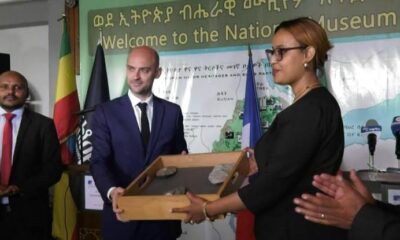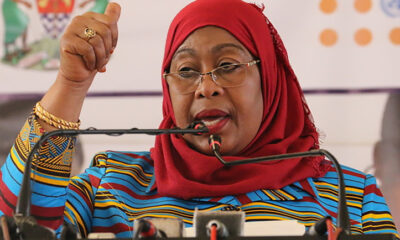Tanzania’s mining regulator has ordered all gold exporters to sell at least 20% of the metal to the central bank to diversify its foreign reserves.
The Central Bank of Tanzania (BoT) started buying gold from local dealers and miners in the past financial year that ended in June to strengthen its reserves amid shilling depreciation.
The central bank increased its gold reserves by 418 kg in the year to June and plans to purchase 6 metric tonnes in the current financial year.
The Tanzania Mining Commission announced late Friday that the instruction will take effect on Oct. 1 as part of a new mining law.
The statement states that miners and traders will have to provide the reserved gold to two significant mineral refineries: Mwanza Precious Metals Refinery Ltd., which is situated in the northern East African city of Mwanza, and Eye of Africa Ltd., which is located in the capital Dodoma.
“All payments will be done according to the Bank of Tanzania arrangements,” the statement said, without providing details on rates.
At the end of July, Tanzania had $5.29 billion in foreign exchange reserves, which was enough to fund 4.3 months’ worth of anticipated imports of goods and services.
Source: https://www.reuters.com/world/africa/tanzania-orders-gold-dealers-reserve-20-purchase-by-cbank-2024-09-28/Tanzania orders gold dealers to reserve 20% for sale to its central bank
Tanzania’s mining regulator has ordered all gold exporters to sell at least 20% of the metal to the central bank to diversify its foreign reserves.
The Central Bank of Tanzania (BoT) started buying gold from local dealers and miners in the past financial year that ended in June to strengthen its reserves amid shilling depreciation.
The central bank increased its gold reserves by 418 kg in the year to June and plans to purchase 6 metric tonnes in the current financial year.
The Tanzania Mining Commission announced late Friday that the instruction will take effect on Oct. 1 as part of a new mining law.
The statement states that miners and traders will have to provide the reserved gold to two significant mineral refineries: Mwanza Precious Metals Refinery Ltd., which is situated in the northern East African city of Mwanza, and Eye of Africa Ltd., which is located in the capital Dodoma.
“All payments will be done according to the Bank of Tanzania arrangements,” the statement said, without providing details on rates.
At the end of July, Tanzania had $5.29 billion in foreign exchange reserves, which was enough to fund 4.3 months’ worth of anticipated imports of goods and services.


 Metro23 hours ago
Metro23 hours ago
 Metro1 day ago
Metro1 day ago
 Sports23 hours ago
Sports23 hours ago
 Culture23 hours ago
Culture23 hours ago



























